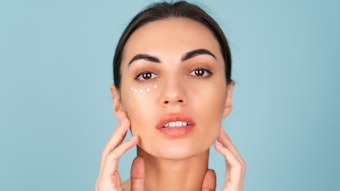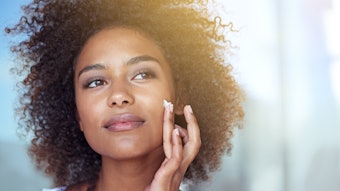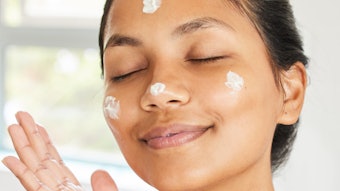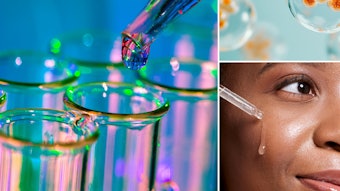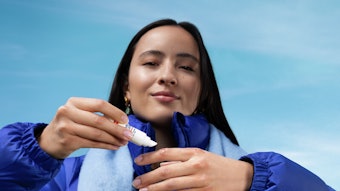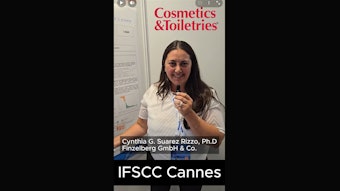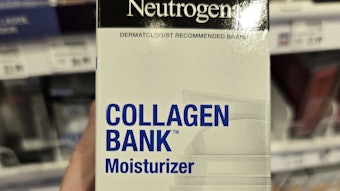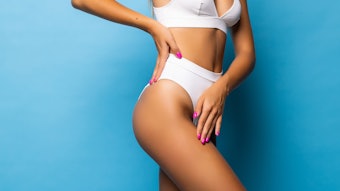In the food and nutrition world, a probiotic is an ingredient that, when ingested, helps aid various ailments. The World Health Organization and the Food and Agriculture Organization of the United Nations describe probiotics as, “Live microorganisms which, when administered in adequate amounts, confer a health benefit on the host.” Probiotics benefit the body as nutritional supplements because they help it produce its own natural or gut flora.
These healthy bacteria reportedly allow the body to boost its own immune system, reduce inflammation, lower cholesterol and manage lactose intolerance, among other benefits that are not entirely proven since research is still in its infancy. Although the specific benefits of probiotics are not concrete, in vivo and in vitro testing has shown the ingredient can produce overall positive results. Soon after the nutrition industry recognized the benefits of probiotics, the personal care industry began researching its application in skin care. What has been discovered so far may reinvent antiaging formulations.
Aea Marc, the vice president of product and business development for Bioelements Inc., had a hand in her company’s effort to incorporate probiotics into one of its products.
Creating a Probiotic Serum
Bioelements Inc. stumbled across probiotics when Barbara Salomone, its president and founder, noted the ingredient’s popularity in food.
“Our president was seeing a lot of information that showed how probiotics strengthened the immune system. She then began to investigate whether probiotics could be applied topically to the skin,” said Marc.
During investigation, the company found a supplier that developed a complex incorporating bifidus ferment lysate in milk proteins. “The [engineered] bifidus ferment lysate is immersed in milk proteins to strengthen the skin,” said Marc.
Although the actives are no longer alive, they are still active. The company formulates the complex at 5%.
Also formulated into the product is soybean seed extract and hydrolyzed rice protein. These ingredients were added for their claimed ability to help protect the skin barrier and build collagen.
In vivo and In vitro Testing
As most cosmetic manufacturers know, science sells. Thus during its ingredient search, the company placed heavy emphasis on efficacy testing and found that, with the particular ingredient chosen, four different tests were performed, two of which relating to the ingredient’s interaction with ultraviolet (UV) light.
“The tests showed that the bifidus complex strengthened the skin against UV light, meaning that the chemical changes that occur when the skin interacts with the sun were reduced,” added Marc.
Additionally, an in vitro test showed an increase in cellular function.
The fourth, in vivo test examined the ingredient’s potential to cause irritation and redness. “Because [the material] strengthens the skin, irritation and redness are reduced. This [benefit] is attributed to the ingredient’s ability to balance the good microflora in the skin,” said Marc, who added that balancing microflora on the skin is similar to balancing it in the gut.
Misconceptions
Probiotics were initially linked to skin care because of their help with acne . According to Marc, this effect is misunderstood.
“[Probiotics] are not really an acne treatment. They can help keep the good bacteria on the skin, thereby helping skin to heal and the acne to clear. Therefore, they are not as much a help in clearing the acne as they are in balancing the skin,” explained Marc.
Who Uses Probiotics
Although the company labels its probiotic serum as antiaging, it recommends that young women in their 20s and 30s use the product.
“Because probiotics help strengthen skin and prevent UV and environmental damage, we recommend the product as a preventive product—as the first step in antiaging skin care,” said Marc. The product is also recommended for overprocessed and irritated skin.
Marc has seen a growth in the use of probiotics in skin products; however, she notes their use is mainly confined to the professional/spa industry.
“Probiotics have not made their way into mass-market products because marketers for cosmetic companies have a difficult time explaining what these ingredients do. Estheticians can better explain to their clients how they can help their skin,” added Marc.
She has noticed that probiotics have branched into different arenas of personal care. “I am hearing they are being formulated into toothpaste, body products and deodorant. I really think that consumers are going see their uses grow in personal care.”
